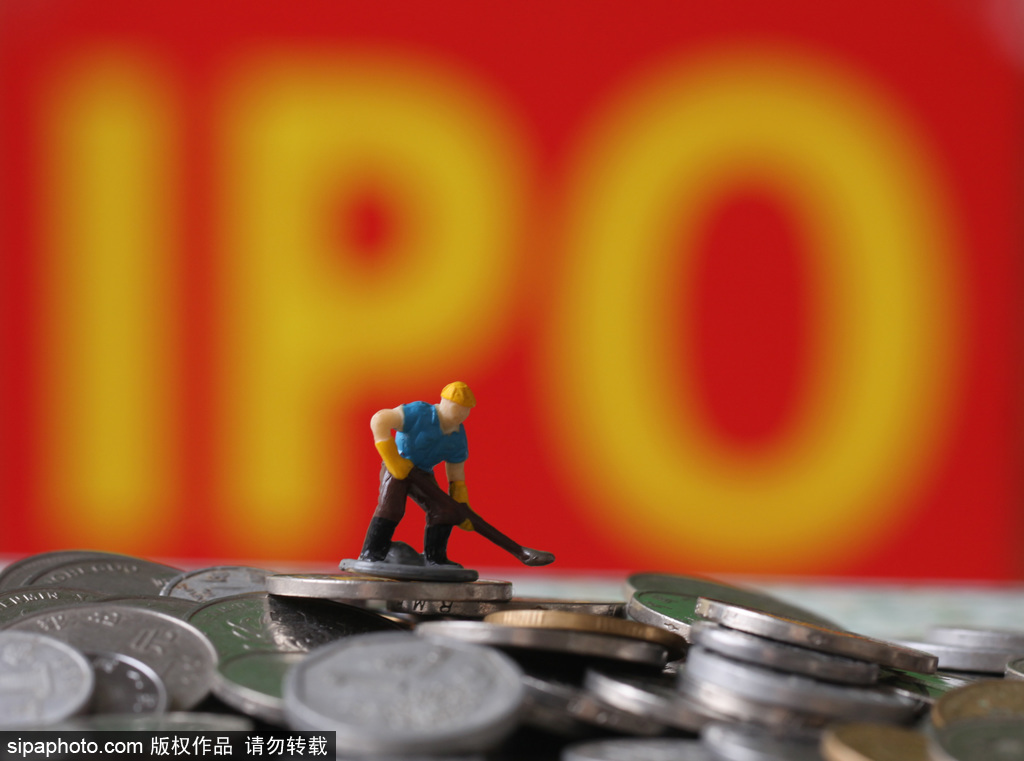IPO reforms progressing on ChiNext


Market forces expected to play bigger role in pricing, timing of public floats
China is moving closer to the official launch of the registration-based initial public offering system on the ChiNext startup board in Shenzhen with the securities regulator and the bourse busy with the final policy preparations for the much-anticipated IPO reform.
The Shenzhen Stock Exchange finished soliciting public opinion on the draft rules for the registration-based IPO system on the ChiNext board this week. The China Securities Regulatory Commission, the securities watchdog, will also finish seeking public comments on its draft regulations by May 27.
Market observers expect the new IPO system to be launched on the ChiNext board later next month at the earliest. The IPO reform is an expansion of the practice of the STAR Market in Shanghai where China first experimented with the registration-based system last July.
The IPO reform, which has been backed by China's top leadership, marked a major step in allowing market forces to play a bigger role and have a greater say in the pricing and timing of the new share sales. It will also help accelerate the development of the country's emerging and strategic industries by channeling more funds into the country's innovative startups.
A recent meeting of the Central Committee for Deepening Overall Reform, presided over by Xi Jinping, general secretary of the Communist Party of China Central Committee, approved the decision to carry out the registration-based IPO system on the ChiNext board in Shenzhen.
The meeting stressed the necessity to deepen capital market reform and improve the fundamental system of the market with the goal of building a "disciplined, transparent, open, vibrant, and resilient" equities market.

Under the registration-based IPO system, companies seeking to list shares on the ChiNext board will no longer need approval from the regulator. The new share sale system emphasizes information disclosure and the stock exchange will review companies' IPO applications based on disclosure rules.
On Wednesday, the ChiNext index rose 0.78 percent to close at 2140.68 points.
Wang Jiyue, an investment banking veteran and an independent analyst, said the ChiNext reform plan will help build a landscape among different financing platforms that is both complementary and competitive.
For instance, Shenzhen's ChiNext will mainly serve innovative growth companies or startups, while Shanghai's STAR Market will continue to focus on technology advances and shows higher risk tolerance, according to Wang.
Yet, there remains competition between the two boards as a tech firm may be qualified for both STAR and ChiNext IPO standards, Wang said.
The complementary yet competitive relationship between the markets will encourage them to learn from each other and improve their attractiveness to high-quality IPO candidates, resulting in a higher efficiency of the capital market in fueling innovation-driven growth, Wang said.
The ChiNext's first batch of registration-based IPOs may debut by the end of July, after the Shenzhen bourse starts to review listing applications under the new system from next month, according to Wang.
Liu Wenqiang, an analyst with the Shenzhen-based Great Wall Securities, said the implementation of the registration system on the ChiNext will be accompanied with intensified crackdown on illegal market behavior and market-oriented reforms in fundamental rules, helping improve the efficiency of asset pricing.
"For instance, the loosened daily gain or loss limit will make speculative trading harder, leading to lower attractiveness of the stocks without solid fundamentals," said Liu.



































